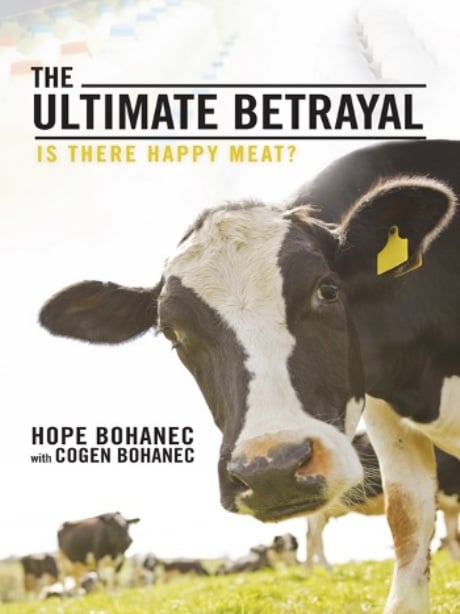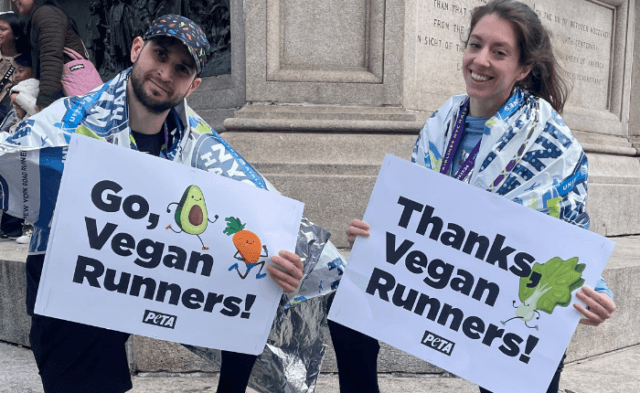You’re probably growing just as weary as I am of hearing people talk about buying “free-range eggs” and “organic meat” and claiming that they’re helping animals. It’s not their fault. As more people become aware of how animals suffer on farms and in slaughterhouses and demand change, meat and dairy companies are putting reassuring “humane” labels on their packages to lull consumers into a false sense of security. But a new book is exposing these “feel-good labels.” Author Hope Bohanec did the legwork, researching humane labels, the farms that use them, and the stores that market them and compiled what she learned in The Ultimate Betrayal: Is There Happy Meat? And what she learned will shock many people.
Bohanec doesn’t pull any punches. She describes how animals are suffering even on “alternative” farms, and she isn’t afraid to call out companies by name. She explains that the animals are usually slaughtered in the same slaughterhouses used by factory farms and interviews slaughterhouse workers who describe the awful process. One of them uses the phrase “nothing short of torture.” She calls out specific organizations that give “humane” certifications and provides examples of animal abuse at farms that carry their labels. And Bohanec doesn’t forget about the fish. She examines “sustainable” labels on fish and details how they involve more deception and greenwashing. It’s disgusting, it’s sad, it’s emotional, and it’s exactly what people need to hear.
She goes on to denounce the “one bad day” rhetoric that attempts to convince people that if animals weren’t quite as abused and tormented as others of their kind during the few short months that they were allowed to live, then their terrifying and sometimes painful deaths in the slaughterhouse are somehow justified. “If one were to treat a person well and then murder him, the preceding ‘humane’ treatment would do nothing to exonerate the killer of the crime, either morally or legally,” Bohanec argues. “At best the perpetrator might receive a sentence that is slightly less than that for a criminal who was guilty of murder and torture. But he would still receive a severe punishment for the killing. Imagine a defense attorney in a murder case making the argument that because the defendant treated his wife well before he killed her he should be acquitted of the horrendous crime.”
Bohanec systematically dismantles the “humane meat” argument one “feel-good label” at a time. And her research leads to one inescapable conclusion. In her words, “it is impossible to produce meat, dairy, or eggs without inherent cruelty. Reducing and eventually abstaining from the use of animal products is the only truly humane option.”
PETA is a participant in the Amazon Services LLC Associates Program, an affiliate advertising program designed to provide a means for sites to earn advertising fees by advertising and linking to Amazon.com.





